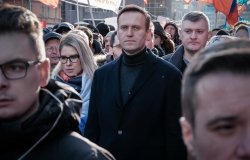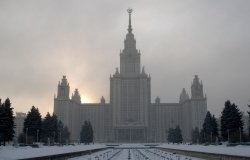Human Rights Approaches to Religion: Implications for Euro-Islamic Relations
with Malcom Evans, Dean of the Faculty of Social Sciences and Law, and Professor of Public International Law at the University of Bristol, School of Law
Overview
Dean Evans' analysis is based upon his personal legal perspectives on the emerging phenomenon of freedom of religion and human rights in Europe. The protection of religious interests of communities within Europe by extracting guarantees on how particular religious minority groups might be treated in states when either new states were coming into being or as territory was changing hands was established following the First World War. Though it is easy to believe this was intended to protect freedom of religion and belief in its current form, it was not. Instead, it was far more a matter of removing causes of tension within an overall political settlement rather than a genuine attempt to seek protection for particular minorities of individuals, as we currently understand religious freedom. However, it has most certainly fed into where the West stands in terms of the legal aspects of this matter.
The individual human rights approach to religious liberty calls us to ultimately ensure that the state respects the rights of all who are subject to its jurisdiction. It is the extent to which the state properly does so that is the subject of international oversight through various human rights mechanisms, especially after the European Convention on Human Rights was adopted after the Second World War. The convention was not particularly prescriptive as to how religious rights of individuals were to be protected. Rather, it established and focused on the outcomes, not on the means by which religious freedom was to be enshrined.
The human rights approach which ultimately discerns if the state has overstepped certain boundaries constitutes modern liberal secularism. Secularism does not prescribe certain relationships among the state, religious institutions and individuals. Instead, the state is meant to support and protect religious beliefs of individuals in the same way that it was to protect other values, goods, and patterns of thought and conscious of a nonreligious manner. The state, acting as a neutral and impartial protector of tolerance and religious pluralism, ensures the physical space within which individuals and religious communities evolve in the light of the particular history and background of the particular country.
One consequence of the secularist approach is that states effectively push the external manifestations of religious belief out of the public space and into the private sphere. One high profile instance involves the case of a Turkish woman seeking to wear a headscarf in a public university, while attending lectures and examinations. This act was prohibited by the university following a ruling from Turkey's constitutional court. The decision was found to be compatible with the European Convention on Human Rights because of the importance of ensuring that the public space was a place where the values of secularism were predominant. While it is acceptable to manifest one's religious beliefs in the private sphere, the public space of the state and its institution cannot be impinged upon. A second case, of a British teenage girl accused of violating her school's dress code by wearing a jilbab (full-length covering), also highlights the underlying problem of the legitimate place of religion in a community and the regulatory authority of the state.
Therefore, legitimating the regulation of religious life in the name of human rights produces a series of tensions between social stability and religious freedom. Recent historical events in the Balkans and elsewhere in southeastern Europe demonstrate the problem of building strong and stable states among societies which define themselves in religious terms, in ways that countries in western and northern Europe do not.
As such, the secular approach that preserves tolerance in the public space and contains religious expression to the private sphere increases the scope for good, healthy relations between Muslims and Christians in Europe and beyond. It is n noteworthy that certain members of Britain's Muslim community are heartened by the presence of the Church of England, in that it represents a proper, legally established, and limited role for religion in the public realm.
However, if one views the state's role as neutral, as that of an impartial coordinator of religious life, then the state should be required to step back from direct involvement in the organization of religious communities - precisely what established state churches mandate.
There exists a vast diversity within Europe's Muslim communities, just as there is within Christian communities. Islam is not monolithic, he emphasized. The same diversity exists within southeastern European societies, where there has been considerable proselytism and missionary activity to convert Muslims into Christians. Westerners, he noted, are all too eager to support such activity in the name of religious freedom, except when it involves Christians converting to Islam. In discussing the issue of religious liberty in the context of human rights, it is imperative to remain objective at all times, and examine situations from all possible perspectives, concluded Dean Evans.
Hosted By

Global Europe Program
The Global Europe Program is focused on Europe’s capabilities, and how it engages on critical global issues. We investigate European approaches to critical global issues. We examine Europe’s relations with Russia and Eurasia, China and the Indo-Pacific, the Middle East and Africa. Our initiatives include “Ukraine in Europe” – an examination of what it will take to make Ukraine’s European future a reality. But we also examine the role of NATO, the European Union and the OSCE, Europe’s energy security, transatlantic trade disputes, and challenges to democracy. The Global Europe Program’s staff, scholars-in-residence, and Global Fellows participate in seminars, policy study groups, and international conferences to provide analytical recommendations to policy makers and the media. Read more

Middle East Program
The Wilson Center’s Middle East Program serves as a crucial resource for the policymaking community and beyond, providing analyses and research that helps inform US foreign policymaking, stimulates public debate, and expands knowledge about issues in the wider Middle East and North Africa (MENA) region. Read more
Thank you for your interest in this event. Please send any feedback or questions to our Events staff.










